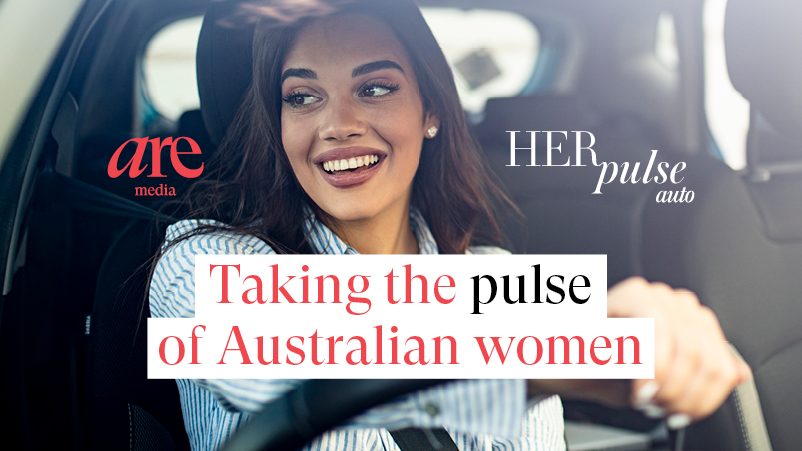Women are confident and informed when buying cars – so why are brands still falling short?

The data doesn’t lie: women are feeling confident and empowered when it comes to purchasing cars.
The data doesn’t lie: women are feeling confident and empowered when it comes to purchasing cars, but according to the latest research, the automotive marketing industry still has a long way to go to catch up.
Are Media has dug into the data from its inaugural HERpulse Auto survey to reveal that although the majority of women are the key decision-maker when it comes to buying a car for the family, many still feel patronised and unrepresented throughout the marketing and sales cycle.
Women are powerful decision-makers
The survey put the facts straight around car purchase power, finding 57 per cent of women are the key decision-makers when it comes to buying a car for the family. Of the women surveyed, 80 per cent drive regularly and 51 per cent are the primary driver in their household.
In order to put themselves in the running with this decisive group, car brands must begin to realise how tough the competition for that top spot really is – and act accordingly. In the research phase, for example, 59 per cent of women are considering just one to three different brands of car. Unless car brands can place themselves in the consideration set from the offset, they won’t stand a chance.
But with over 50 different car manufacturers available in Australia, how can auto brands ensure they’re top of the consideration list? For the majority of women, choosing a car brand comes down to having the right values. When asked what goes into their consideration when thinking about buying a car, six in ten women believe a car brand should have specific values that they stand for.
A further 51 per cent agreed that a car brand needs to have values in alignment with their own before they will consider purchasing, and 47 per cent have a clear idea of what different brands stand for. Personality is also an important consideration, with 52 per cent of women choosing car brands that have personalities that reflect on their owners.
Making ads that speak to women
Advertising is one of the best ways for brands to communicate what they stand for, evoke emotions, and improve consideration. For carmakers, it’s the perfect way to communicate what they stand for to the majority of women who believe brands should match their own values.
As things stand, however, women - whatever their values - appear to have been left out of the automotive advertising equation entirely. In fact, just 20 per cent of women see themselves represented in car ads frequently, and only a third said they found car ads persuasive in helping them determine which brands to consider.
In order to better appeal to women, ads need to better outline the functional and practical features of the car, but also join the dots on the brand itself and what it stands for.
Marketers should also avoid sinking their entire budget into the typical high-octane, high-budget TVC, and consider a healthier media mix. Women trust a broad range of sources when seeking out information about cars, and don’t necessarily rely on the formats that we traditionally think of as ‘car media’.
When asked about how much they trust various information sources when purchasing a car, word of mouth from family and friends rated the highest, followed by online articles and reviews, print reviews, newspapers, and magazines.
A more nuanced sales experience
The good news is that women are feeling more confident in the salesroom environment, with 52 per cent feeling confident negotiating price and inclusions with the salesperson. Despite this positive shift, there are still clear areas for improvement. While 66 per cent of women said they felt comfortable speaking to the sales staff, for example, 43 per cent had staff try to speak to their partner instead.
If auto brands can ensure better treatment of women by sales staff, along with a more honest and transparent sales system, they’ll be better able to match women’s confidence with outstanding customer service.
Ultimately, car brands must begin to realise that women can’t fit into a single category, and car marketing must avoid treating them like they do. Sure, some women might be most interested in how the car looks, but the majority are far more interested in price, practicality, safety features, running costs and the values they stand for.
If automakers want to fully embrace this powerful demographic, dealers and advertisers alike must start taking women seriously, backed by a more transparent sales system and ads that truly represent their priorities, desires, and values.
We Are happy to help them.
